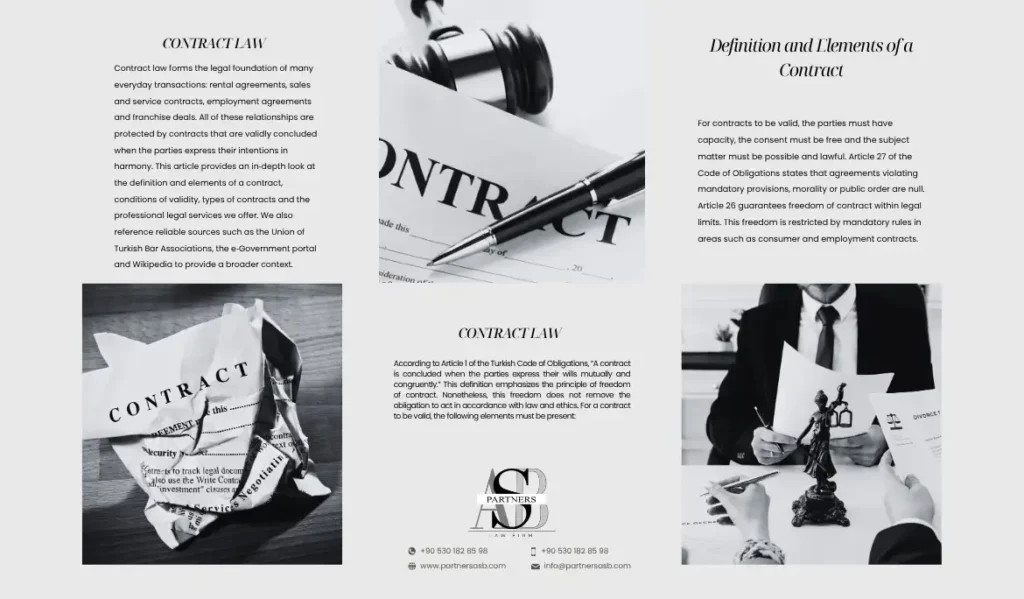Contracts are divided into various categories according to their purpose and parties. The following list summarizes the most common types of contracts. The explanations under each heading are provided in English.
Sales Contracts
These contracts regulate the transfer of goods or services in exchange for a specific price. They may cover movable or immovable property. A well-drafted sales contract should clearly specify the price, delivery terms, payment conditions, and liability for defects.
Service Agreements
Regulate the relationship between a service provider and a client. They are typically used in labor‑intensive activities. Key provisions include the duration of the service, remuneration and scope of work.
Lease Agreements
Concern the transfer of the right to use movable or immovable property for a fee. Examples include residential, commercial or vehicle leases. Essential clauses cover the rental term, security deposit, rent increase and eviction conditions.
Employment Contracts
These are special service contracts between employer and employee governed by labor law. They must specify working conditions, remuneration, job description and termination provisions.
Sub‑Contracting Agreements
These agreements between a main contractor and a subcontractor allocate specific parts of a project. Common in the construction sector, they should clearly define responsibilities to prevent future disputes.
Franchise Agreements
Regulate the licensing of a brand’s products or services to another entrepreneur. The franchisor provides the trade name, know‑how and support in exchange for fees. The agreement should cover territory, quality standards and inspection rights.
Work Contracts
Concern the creation of a specific work (such as a building, software or design) in return for payment. The contract should stipulate flawless delivery, workmanship and material quality.
Construction Agreements for Land Share
Contracts in which the landowner transfers part of the land to a contractor, who in return undertakes to construct and deliver independent units. They must specify delivery deadlines, building permits and title deed procedures.
Intellectual Property and Copyright Agreements
Regulate the transfer or licensing of the author’s economic rights. Used for software, books, music, trademarks and designs. Provisions should specify the duration of rights, scope of the license and revenue sharing.
Transport and Logistics Contracts
Govern the transport of goods, items or passengers by road, sea or air. They must define the carrier’s responsibilities, liability for damage and insurance conditions.
Joint Venture and Consortium Agreements
Temporary partnerships formed by companies to undertake a specific project or tender. The contract should detail the division of work, responsibility ratios and profit sharing.



